He’s Still Standing: How Elton John made honesty his best policy after years of shame
Since achieving sobriety in 1990, the legendary pop star has laid bare the darkest chapters of his life for all the world to see, writes Stevie Chick. His frank new documentary is the latest step in a decades-long campaign of openness and honesty, spurred on by years of private shame and living in the closet


It’s October 1975 and Elton John’s US tour is about to conclude with two sold-out nights at Dodger Stadium, Los Angeles. These shows would go on to become a turning point in the pop star’s narrative, and nearly five decades later, a pivotal moment in his new Disney+ documentary, Elton John: Never Too Late.
Elton first arrived in LA from London five years earlier, a struggling unknown. His six-night residency at Hollywood watering hole The Troubadour in August proved an unexpected triumph – Neil Diamond introduced Elton on stage on the first night, where the audience included Elton’s hero, Leon Russell, and Bob Dylan, who visited his dressing room before one performance. The critics in attendance left frothing with plaudits – LA Times writer Robert Hilburn presciently declared that the flamboyant pianist from Pinner was “going to be one of rock’s biggest and most important stars”.
Half a decade later, Elton was riding high, conceiving these Dodger Stadium shows as a celebration of everything he’d achieved – which by then included career-defining LPs like Madman Across The Water and Goodbye Yellow Brick Road, and Captain Fantastic And The Brown Dirt Cowboy, the first album to debut atop America’s Billboard charts.
He flew in his mum, stepdad, grandma and even his old neighbours to share this glorious moment with him. “I wanted my family to see it,” he later wrote. “I wanted them to be proud of me.” But the shows almost didn’t happen. The afternoon before opening night, at his home in Benedict Canyon, Elton swallowed 12 Valium and threw himself, fully clothed, in the swimming pool, intending to drown.
It’s a moment Elton has revisited numerous times, most famously in Dexter Fletcher’s 2019 biopic Rocketman, but also in his bestselling 2020 memoir Me and now once again in Never Too Late. Since finally achieving sobriety in 1990, Elton has spent years dissecting that dark chapter of his life, and he has done so in the spotlight of public scrutiny – destroying his previously very private shame through an ongoing campaign of openness and honesty.
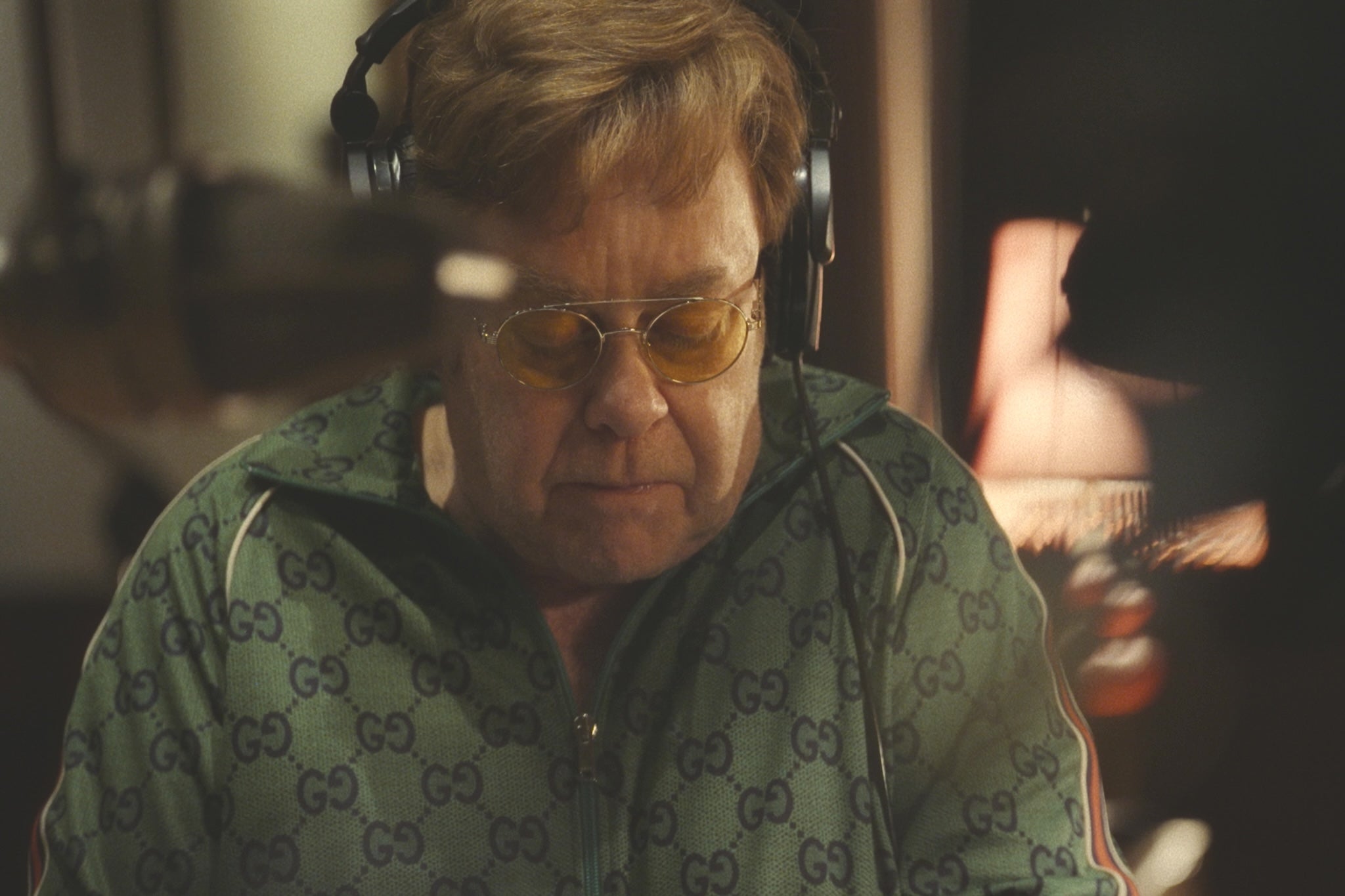
Take 1997’s infamous Tantrums & Tiaras. Directed by husband David Furnish, it was an early example of Elton’s compulsion to show us who he truly is: a harsh, if ultimately affectionate, picture of what he would later describe as the Dwight Family Temper. (His real name is Reginald Kenneth Dwight.)
Never Too Late is a more serious film. Co-directed by Furnish and RJ Cutler, it is an attempt to place Elton’s life and art in context as he retires from the stage aged 77 and, in the process, feeds his impulse to come out from behind the curtain and put it all out there, sharing the depths of his mid-Seventies depression and self-destruction in new, unforgiving clarity.
That storied leap into the pool was a symptom of Elton becoming overwhelmed by his addictions. The addictions, themselves, symptomatic of years of living a false life unable to live as his true self and having to hide his sexuality from the public, as well as the profound unhappiness and self-loathing rooted in how he was raised.
“My whole childhood was full of fear,” he says, early in the new documentary. His father, Stanley, was a distant, disapproving figure. His mother, Sheila, was regularly engulfed by anger, and would beat her son in the street. “I think of Mum’s moods: awful, glowering, miserable silences that descended upon the house without warning,” he writes in Me. “The Dwight Family Temper was the bane of my life as a kid and remained the bane of my life when it became apparent it was hereditary.” His parents’ marriage was unhappy, and their only child suffered the turbulence keenly, blotting out their constant arguing by fantasising about living other lives, of somehow making it as a musician.
Despite his small hands, which he refers to self-deprecatingly throughout the documentary, the young Reg Dwight was something of a piano prodigy, attending lessons at the Royal Academy every Saturday morning and being regularly wheeled out to show off his nascent skills when visitors came to the house. But his heart wasn’t in the classics; his true love was rock’n’roll. “My father hated rock’n’roll,” Elton says. “He instilled in me a desire to prove rock’n’roll wasn’t s***.”
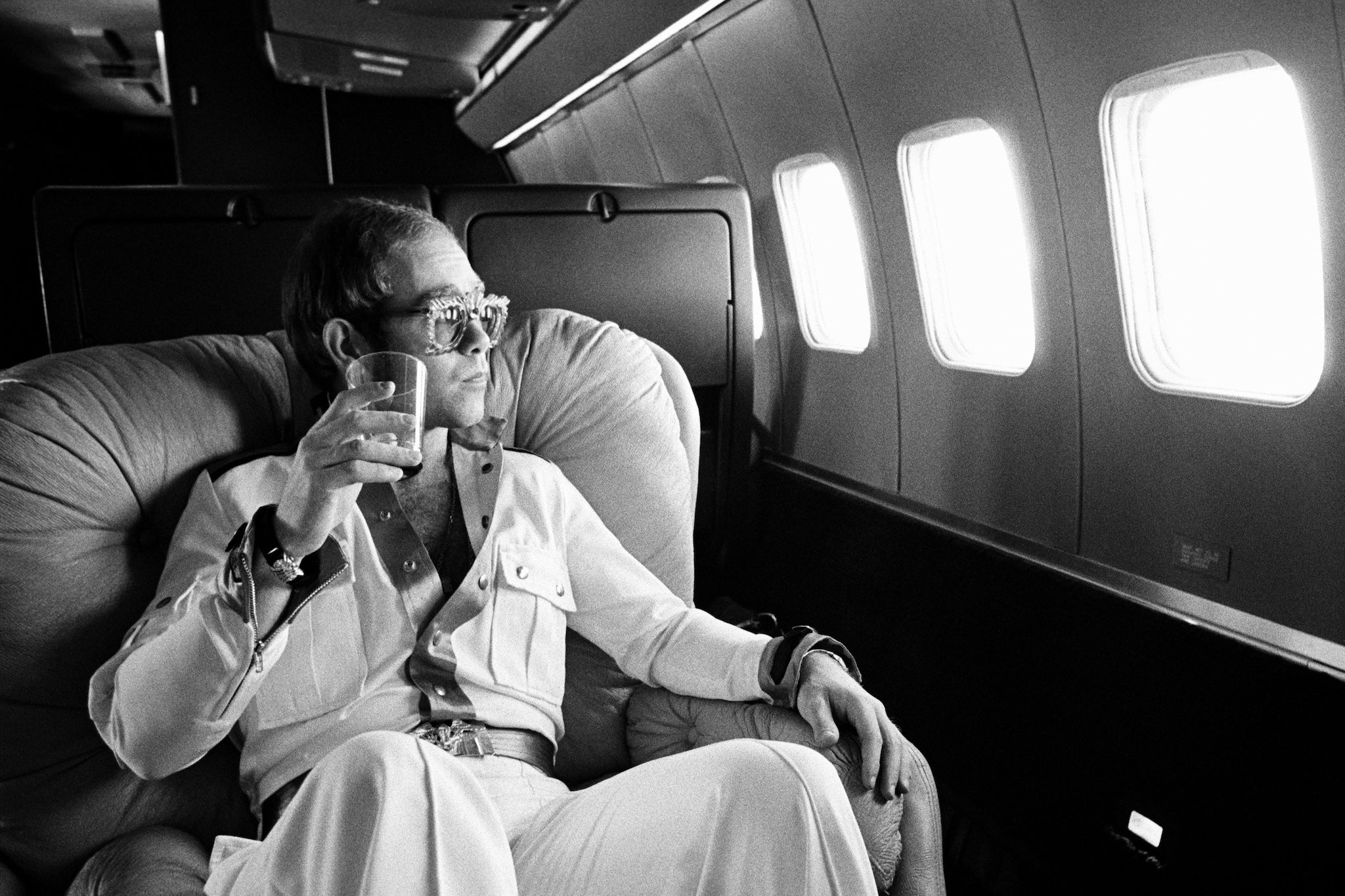
He saved up and bought a microphone and amplifier, to perform at the rowdy pub near his home– the first in a series of profound self-actualisations, in which he would realise suddenly that he wasn’t following his true path, and decisively rectify that. Like when he ditched his gig as a pianist for blues singer Long John Baldry, to perform his own music instead. Or when, in 1967, he swapped his birth name for his nom du rock. (“Reg? He was never gonna make it,” he explains in Never Too Late. “But Elton John? He was different.”) Or when, a couple of years after that, he and songwriting partner Bernie Taupin quit penning unsuccessful easy-listening songs for hire and instead followed their passions to write Elton’s debut LP, Empty Sky.
With each realignment, his career took a further quantum leap. Following his North Star, Elton swiftly became one of the biggest rock stars in the world, and success had a liberating effect. Elton’s friends knew he was gay before he did. Baldry stopped him from marrying his pre-fame girlfriend, shouting: “What are you doing living with a f***ing woman? Wake up and smell the roses: you’re gay!” But it wasn’t until his first serious relationship, with manager John Reid, which foundered after Reid punched him, that Elton fully explored his sexuality. “I was exposed to a brand new world,” he remembers in Never Too Late. “The side of me that had been closed up for years came out. And I was just having fun. I was really having fun.”
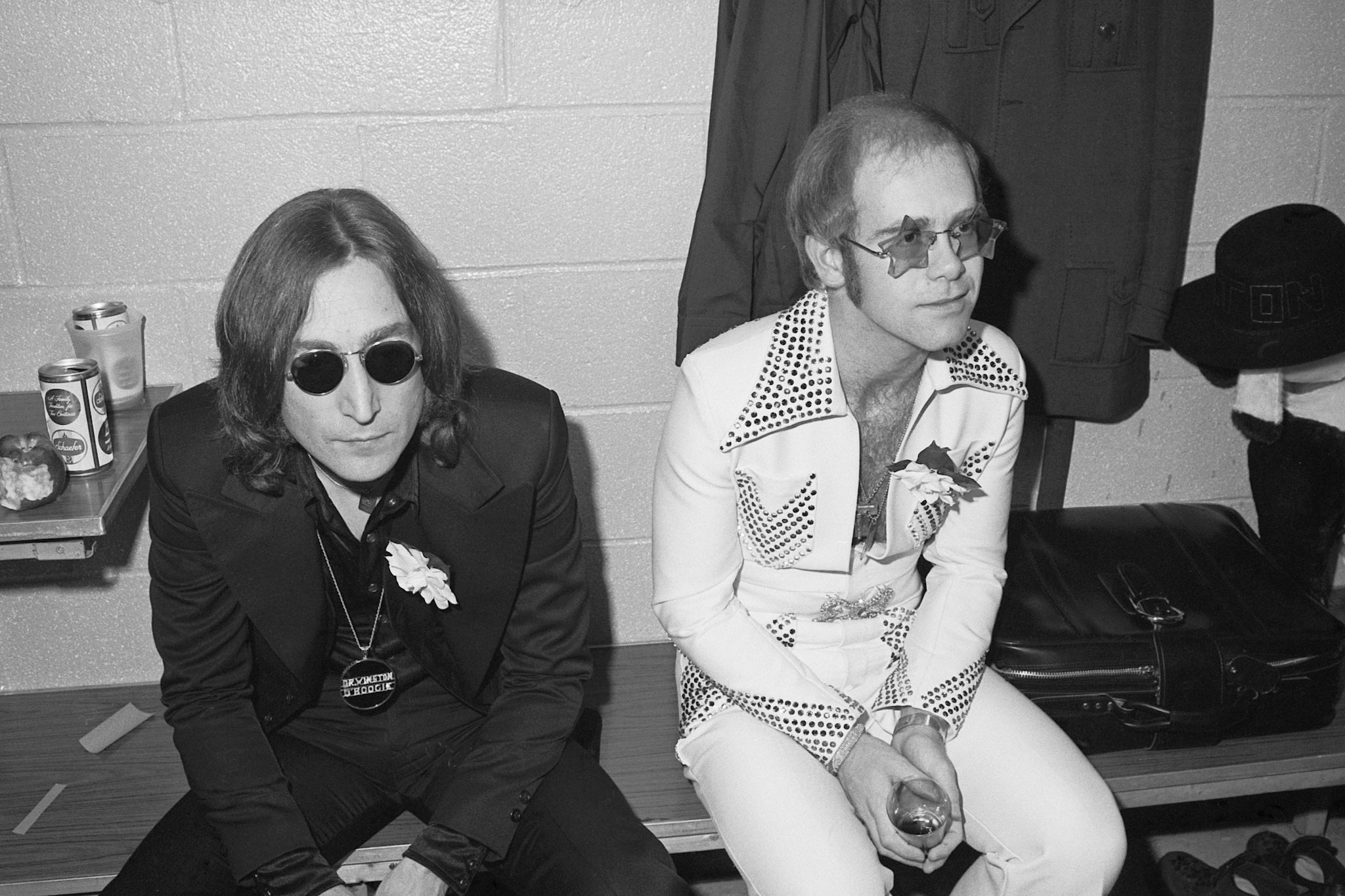
But while Elton was finally accepting who he really was, he couldn’t trust that the world would. It was the 1970s and, as he told Alexis Petridis, ghostwriter of Me, “if [people] were gay, they were in the closet”. So, Elton lived his life in secret. And it was in those shadows, behind that mask, that life quickly slipped out of control.
This manic phase was fuelled by cocaine, to which he’d been introduced by Reid. He was, at first, a reluctant user – his inaugural snort left him feeling ill. But he soon came to appreciate its medicinal properties. “It gave me confidence,” he says in the documentary. “I finally wasn’t intimidated to be in a room full of strangers.” But use slipped into abuse. “I was the worst kind of person to take drugs because I couldn’t have a line and then put it away – I just had to finish it off, and then I’d want more,” he says.
He’d used cocaine to destroy his shyness, his anxiety. But as his appetites increased, it seemed what he really wanted to destroy was himself. Elton knew the horror stories of the celebrities who’d preceded him – Elvis and Marilyn, more imprisoned than empowered by their stardom – but was helpless to prevent himself from repeating them.
I liked nothing more than to shut my bedroom door and do a two, three-day binge on my own in my hotel suite, just watching porno, smoking dope, [drinking] whiskey
And his pleasure-seeking quickly became joyless. “I liked nothing more than to shut my bedroom door and do a two, three-day binge on my own in my hotel suite, just watching porno, smoking dope, [drinking] whiskey,” he confesses. His debauchery was private, shameful, a self-medication that was killing him. And, he realised later, it was rooted in the pain of his earliest years: “Running away was what I did in my childhood. I’ve been running away ever since I was four or five, shutting the door when my parents were rowing.”
In his desperation to escape the fear he’d grown up with, he ran headlong into self-destructive habits that could have ended his life. The candour, then, with which he lives his life now – head-on, no mask, no secrets – is Elton conquering that fear, annihilating it, and ultimately removing its power over him.
But in 1975 he was at the peak of his fame and nadir of his agony, exhausted from all the running away. The Dodger Stadium show was supposed to be a pinnacle, a celebration of everything Elton John was. But he’d begun to hate Elton John. Not the music he made, mind you – those two hours onstage were often the only hours of the day he truly felt alive, feeling the love of the strangers hanging onto his every word – but the other 22 hours each day that he suffered through.
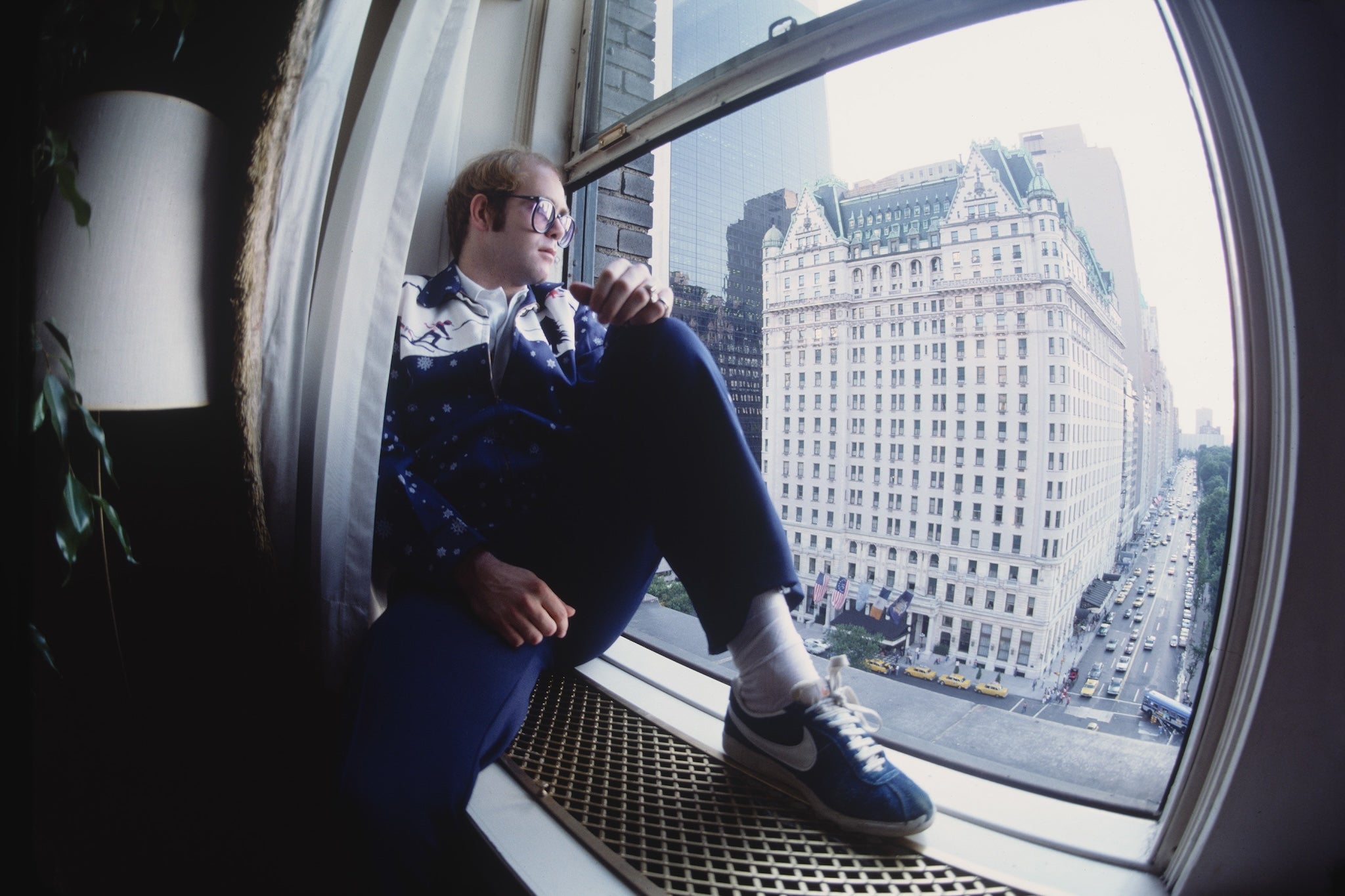
“I knew I couldn’t stay so unhappy and so miserable,” he says in the documentary. So: the Valium, the pool, the suicide attempt. His assistant dived in after him, and with the help of his mum and stepdad, pulled him from the water. Before his stomach was pumped, Elton overheard his nan grumble: “We might as well bleedin’ go home, then.”
It was his family whose acceptance he’d needed the most. While his mother and stepdad had no issue with Elton’s sexuality (although in Me he writes that later years saw that infamous Dwight Family Temper resurface as his relationship with his mother disintegrated), he also needed them to see who he truly was in this moment: a desperately unhappy man killing himself via numerous methods of varying directness and speed. It was, clearly, a call for help.
“I was trying to make my family understand there was something wrong,” he says in Never Too Late. “I couldn’t say to them, ‘I think I’m taking too many drugs’, because they would never understand. I hadn’t got the guts to tell them, ‘I need a bit of love’, because I didn’t want them to see any cracks in the facade at all. Instead, I bottled it up, and eventually went off like Vesuvius.”
To finally be able to be who I was? You’ve no idea
Indeed, he did. But the Dodger Stadium shows went ahead, and Elton – dressed in a besequinned Dodgers uniform – was triumphant, if only for as long as he was on stage and the crowd were applauding. Off stage, the debauchery continued: sobriety lay in his future, but the path towards it was long and winding, strewn with destruction.
The first step in the right direction came with a 1976 interview with Rolling Stone reporter Cliff Jahr, who got the scoop that Elton was officially bisexual. For the first time, Elton pulled back the veil from the life he’d been keeping secret from the world at large. “There was a knee-jerk reaction in America,” Elton said later. “Some radio stations burned my records. It hurt my career.” But coming out of the closet was more liberating than anything else: “To finally be able to be who I was? You’ve no idea.”
Elton finally got clean 14 years later, in 1990. During his time in rehab, he realised the unreality of fame; he understood that it was the turmoil of maintaining a happy facade that was driving his illness. “You’re just isolating yourself from the real world,” he writes in Me, “and the more removed you become from the person you’re supposed to be, the harder you’re making your life and the less happy you become.” In the years that followed, he reached out to fellow stars struggling with addiction, to help their journey to health. Some, like Eminem, appreciated it; others, like the late George Michael, spurned the advice.
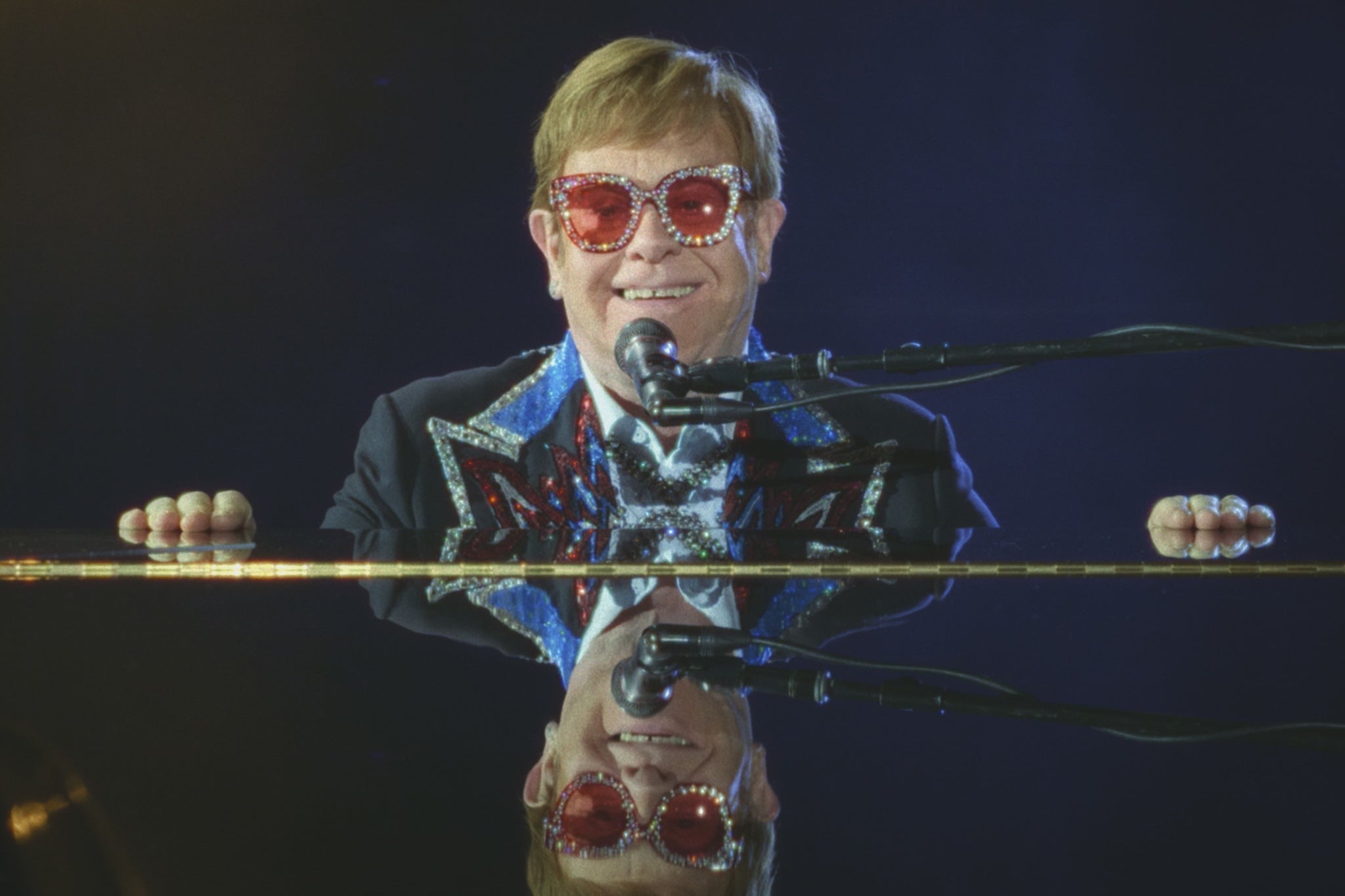
Elton has long pursued a doctrine of firm openness over his struggles – this documentary is the latest example of that, laying bare his imperfections. Once again, we see who he truly is, rather than who he thinks others believe he should be.
With Never Too Late, he’s telling his story in an ever more straightforward, unsensationalised way. In Rocketman, the near-drowning in the pool is somewhat romanticised, Taron Egerton’s Elton making a grand, albeit brief, speech before tumbling into the water, to be serenaded by a small child playing a piano and singing lines from “Rocket Man”. Partygoers, swishing about like synchronised swimmers, swoop in to rescue him. In Never Too Late, the scene is animated, and over in a couple of seconds, the suicide attempt depicted unpoetically, presented as a clumsy act of desperation.
Such openness and honesty is certainly part of why younger artists still flock to work with Elton: his understanding of mental health and lack of judgement make perfect sense to the TikTok generation putting it all out there before their fans, without secrets. Because in the end, it’s the secrets that will kill you. And the title of the new documentary is itself a message, a pledge of advice, that your life can be saved too, if you live true to who you are. Elton knows better than anybody that it’s never too late.
‘Elton John: Never Too Late’ is out on Disney+ on 13 December
Join our commenting forum
Join thought-provoking conversations, follow other Independent readers and see their replies
Comments
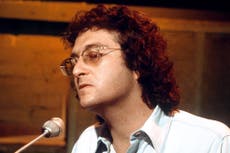

Bookmark popover
Removed from bookmarks